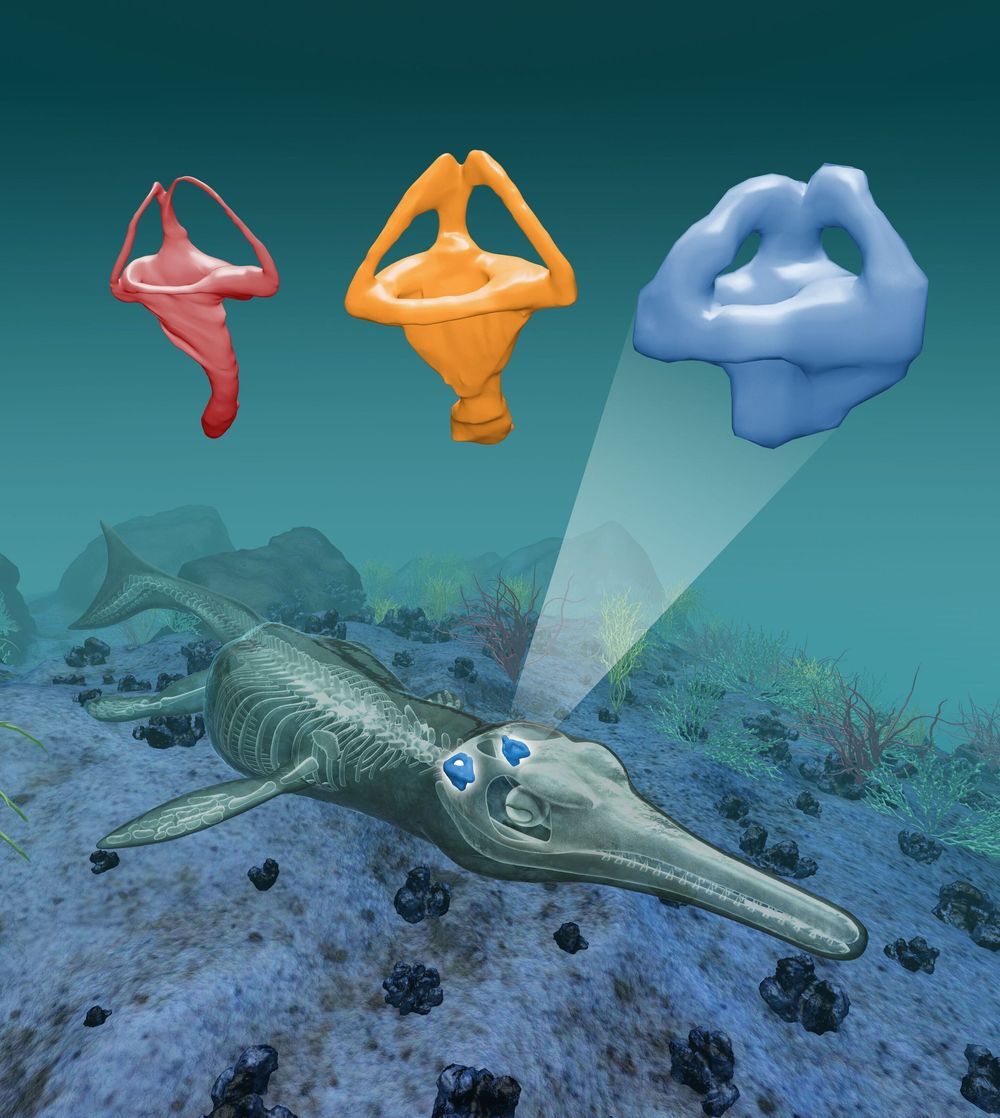An international team of researchers has found that an ancient crocodile relative underwent body transitions as it evolved from a land to a sea creature before its ears changed to suit an underwater environment. In their paper published in Proceedings of the National Academy of Sciences, the group describes their in-depth study of thalattosuchia skulls and what they found.
Thalattosuchia was an ancient crocodile species that lived in the world’s oceans over 150 million years ago. But before that, they were land-dwelling. Prior research has shown that they took to water in a much slower fashion than other creatures like whales, existing as semi-aquatic creatures for many years before becoming full-fledged sea creatures. Study of their fossilized remains has shown their front legs evolving to become fins, and their back legs evolving into a fluked tail. Their bodies grew slimmer and sleeker to so they could glide smoothly through the water. And once they became sea creatures, their internal organs changed to suit the new environment. One such organ was the inner ear. And it was this organ that was the focus of this new work.
To learn more about the evolution of thalattosuchia’s ears, the researchers conducted CAT scans on over a dozen skull fossils. They focused most specifically on the inner ear structures used to maintain balance and equilibrium in land creatures.
